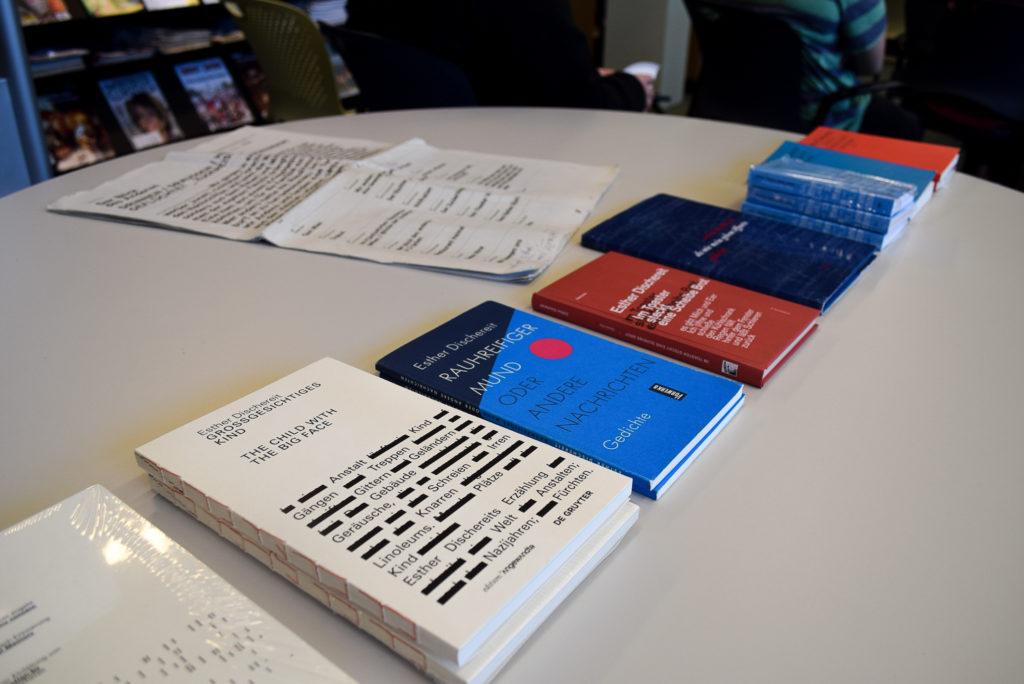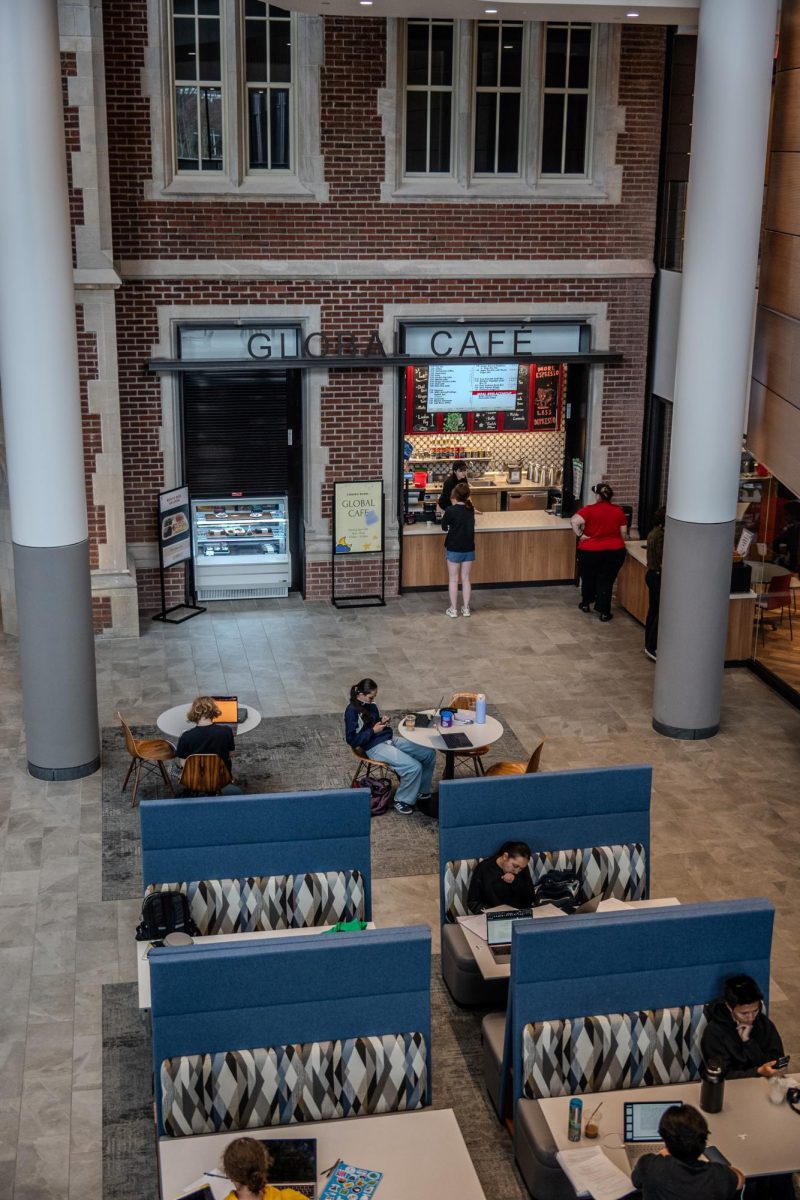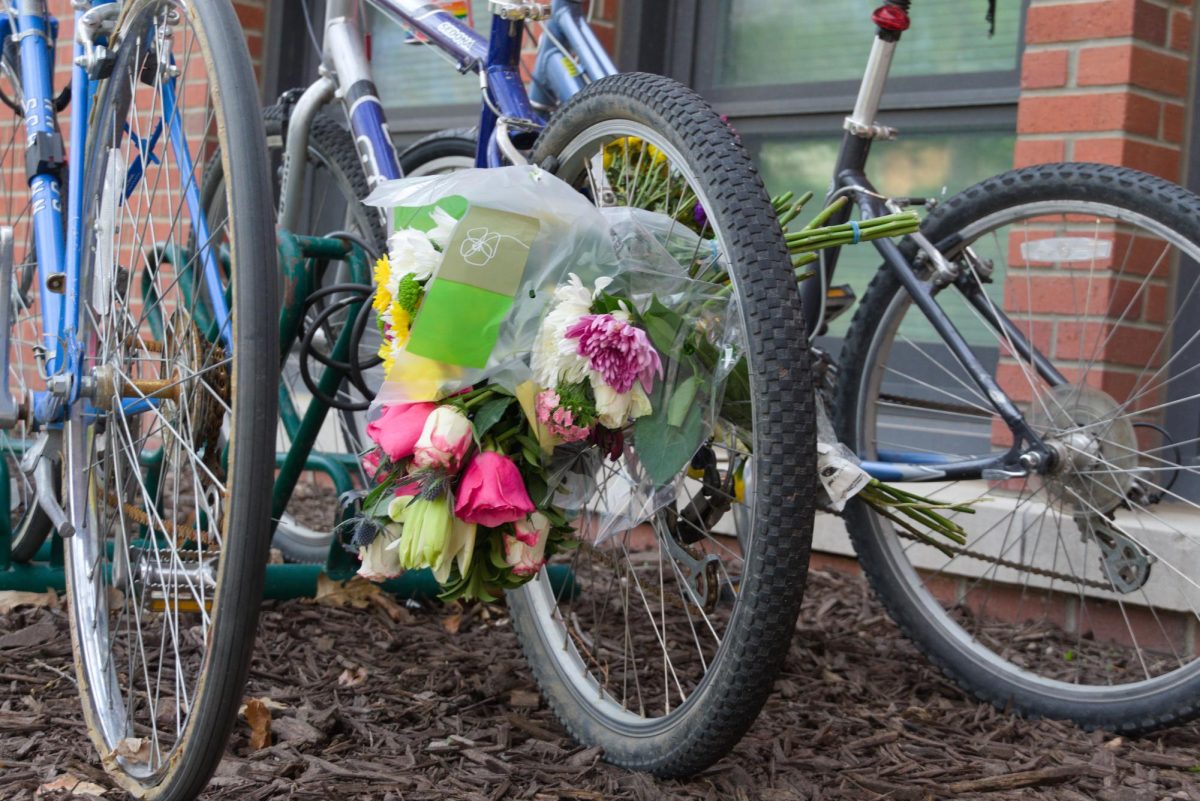By Sam Rueter
ruetersa@grinnell.edu
The fall 2017 semester marks the beginning of the College’s inaugural “German Campus Week,” headed by the German department. The program of events, which starts this week and runs through Sept. 26, is sponsored by the German embassy in Washington, D.C., and aims to cultivate a meaningful and friendly relationship between Germany and the United States on college campuses. Grinnell College is one of a select few colleges invited to partner with the German embassy. According to Professor Javier Samper-Vendrell, German, this invitation reflects positively on the overall strength of the German department.
“It’s a great honor and recognition to have been included in this campaign,” Samper-Vendrell wrote in an email to The S&B. “We are part of a select group of colleges and universities, such as Johns Hopkins, Colby College or the University of Iowa, cooperating with the embassy.”
The theme of this year’s Campus Week is “Germany Making Choices,” which will be reflected in the classroom as well in a series of events and exhibitions hosted all across campus throughout the month of September.
For students in 200 and 300 level German courses, there will be an opportunity to discuss Germany’s elections in class, which Samper-Vendrell hopes will give important insight into ideas of “European integration, refugees, justice and equality, as well as the growth of a right-wing populist movement in Germany.” For others interested in German culture and politics, there will be a host of other events to get the Grinnell community thinking and talking about all things Germany.

On Sept. 24, the German department will host a German election party at 1 p.m. in ARH 120. Students will be able to follow the election results live on TV, and there will also be an interactive quiz challenge at 2 p.m. The winners of the quiz challenge will receive a gift card from the Pioneer Bookstore.
On Sept. 25, Herbert L. Quelle, German Consul General in Chicago, will speak on the German elections and the role of the consulate in the Midwest, in an event co-sponsored by the Rosenfield Program in Foreign Affairs, International Relations and Human Rights.
Later in the fall semester, there will be a free screening of the film “We Are Young. We Are Strong” (Burhan Qurbany, Germany, 2014). According to Samper-Vendrell, the film is about “the Rockstock-Lichtenhagen riots in 1992, [which] were attacks against asylum seekers in the newly reunified East Germany.” A group discussion on the true story behind the movie and contemporary expressions of xenophobia in Germany will follow the show.
Finally, a poster exhibition, titled “German Exhibition,” is currently installed on the second floor of ARH. The exhibition familiarizes visitors with the political history and structure of Germany.
Aside from a foray into German language and culture, the German department hopes that Campus Week will allow students to think critically about the relationship between the U.S. and Germany as major world powers, both abroad and in Iowa.
“I hope that the students will become familiar with German politics and the importance of transnational cooperation and dialogue,” Samper-Vendrell wrote. “I also hope that the consul general’s visit will be a way for the entire campus and community to understand and ask questions about German investment and cooperation in Iowa and the larger Midwest.”
Although Campus Week looms on the horizon, the German department has more events to be on the lookout for in the near future, according to Samper-Vendrell.
“On Oct. 11, Leslie Morris, associate professor of German at the University of Minnesota, will give a talk on post-Holocaust art and aesthetics based on her forthcoming book “The Translated Jew: Reimagining German-Jewish Writing Outside the Margins.” Next spring, the department will also welcome Barbara Yelin, a renowned graphic novelist, who will be the German department’s writer-in-residence.”
Samper-Vendrell hopes that these future events, coupled with German Campus Week, will intensify interest and excitement on campus around Germany and the German Department.
Professor Reynolds also echoes Samper-Vendrell’s assertion that he hopes students will learn more about the importance of global studies and transnational dialogue through German Campus Week.
“Anything that brings awareness to what is going on outside of the US politically is a reminder that our political situation here is part of a global phenomenon,” Reynolds said. “German-speaking Europe truly merits our study and attention.”
For additional information and a preliminary schedule of German Campus Week events, check out http://www.grinnell.edu/news/german-campus-week-2017.































































